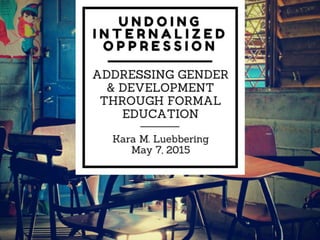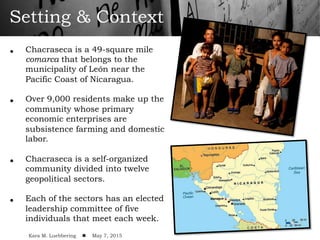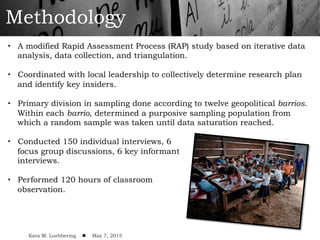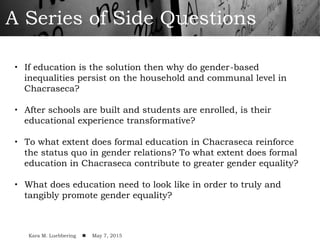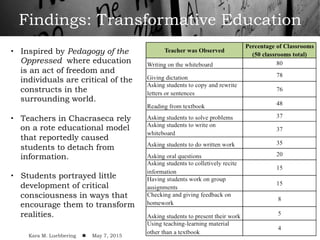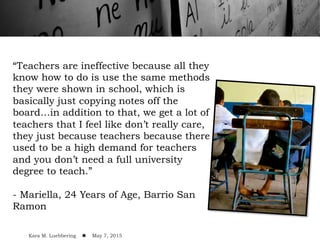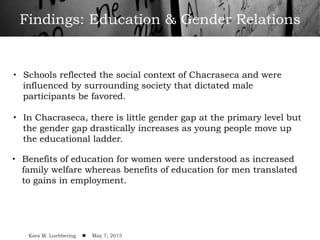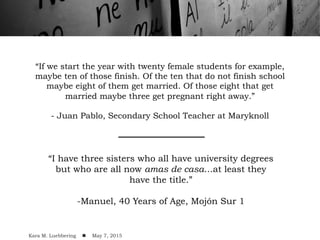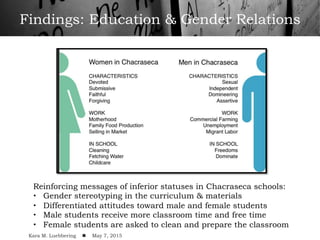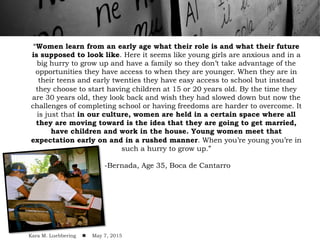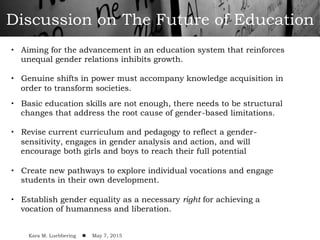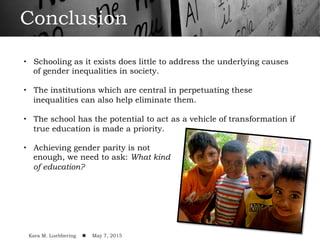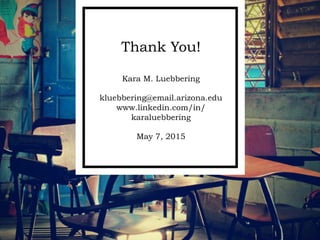The document summarizes a study on education and gender relations in Chacraseca, Nicaragua. It conducted over 150 interviews and focus groups to examine how the education system affects gender equality. It finds that while schools provide basic skills, the curriculum and teaching methods reinforce traditional gender roles and stereotypes. As a result, educational attainment drops off sharply for females compared to males. The study concludes that truly transformative education is needed that addresses the root causes of inequality in society, not just knowledge acquisition.
